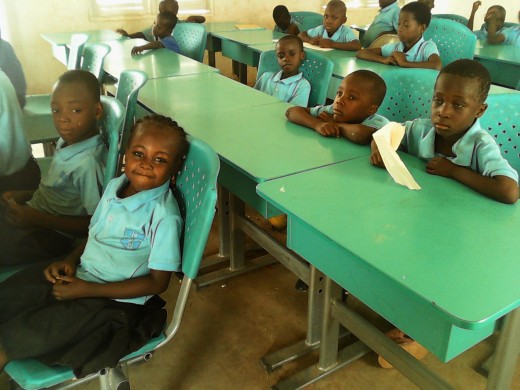Factors Affecting Effective Teaching
A major setback to effective teaching is the less in the number of teachers in schools. The ratio of teachers to students in Ghanaian basic schools is about 1: 100. This situation does not urger well for effective teaching and learning. Teachers are not able to take care of the large numbers of students in the classroom. Exercises cannot be completed on time by teachers and feedback to students is often delayed. We all understand how difficult it is for one teacher to control a choked class of over 90 pupils.
The availability of school facilities such as adequate classroom space, furniture and reading/writing materials determines how well a teacher can deliver to his pupils. School children sit on the floors of the classroom to learn as a result of the lack of furniture in schools. Many children in schools in the rural communities still sit under trees to learn even though the government has put up measures to curb the situation. Textbooks and syllabus are inadequate for effective teaching and learning in schools.
Besides, the lack of motivation in the teaching profession in the country contributes to the above issue. The teacher is seen as someone who sacrifices all he has to train others but there is no better incentive to sustain the interest of the teacher as compared to other professionals within the country. All other professionals in fact who were trained by the poor teacher seem to be more important to the state than the teacher. When teachers feel their efforts are not being appreciated they will not teach effectively and this can pose a threat to development in education.

Student absenteeism cannot be left out of the challenges to effective learning. Students absent themselves from school most often. Some parents show less concern in the learning progress of their wards in schools. Lack of supervision at home and absenteeism from school results in poor class performance by students. Parents have to take full responsibility of educating their children since the government cannot provide resources to educate every individual.
¨ One cannot go without mentioning the fact that a person’s attitude at his work determines his productivity. Some teachers who are posted to rural communities either refuse the postings or do not go to teach at the schools. Some teachers too report late to school. This attitude of some teachers can not contribute to developing the educational sector in the country.
To conclude with, it is not solely the responsibility of parents, teachers and the government to improve upon the practice of education but rather the collective responsibility of all citizens in a state.
This content is accurate and true to the best of the author’s knowledge and is not meant to substitute for formal and individualized advice from a qualified professional.
© 2015 Felix Nyawuni








